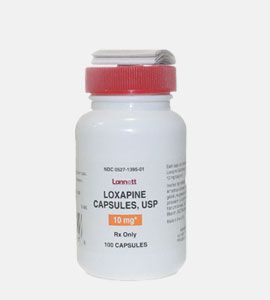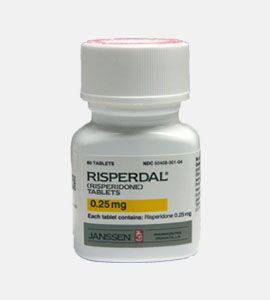
* For illustration purpose only
Loxitane (Generic)

Not in stock
Commercial Name: Loxitane (Generic)
Ingredient: Loxitane
Utilization: Treats Schizophrenia
Available Dosage: 25mg, 10mg

* Prices in the list do not apply to Switzerland, Sweden and Denmark. Customers are advised to place an order, and our team will contact back with updated prices.

There are 26 users looking at this product right now
Loxitane (Generic) is a drug that has a powerful immunosuppressive and cytostatic effect.
The immunosuppressive effect of the drug leads to more significant inhibition of delayed-type hypersensitivity, as well as to the cellular cytotoxicity (in comparison with the production of antibodies).
The active substance inhibits the metabolism of purines, can suppress the synthesis of protein, RNA and DNA, as well as effect cell metabolism, suppress mitosis.
In rheumatoid arthritis or other autoimmune processes, the mechanism of action of azathioprine is unknown, however, presumably, it is due to immunosuppression. As a result of the use of Loxitane (Generic), the need for taking glucocorticoids during combination therapy is reduced.
Loxitane (Generic) has the following pharmacological effects:
Immunosuppressive (after drug withdrawal, clinical effects may persist for a long time);
Antirheumatic (drug transforming the disease): begins to act after 6-8 weeks;
Anti-inflammatory (with systemic lupus erythematosus and intestinal diseases): it takes effect in 4–8 weeks.
Loxitane (Generic) is characterized by a high absorption from the gastrointestinal tract and a low bond to plasma proteins (30%).
Further metabolism occurs in the liver (mainly with the participation of xanthine oxidase) and in erythrocytes, the ratio of which is different in different patients. The liver and kidneys carry out elimination. And from 1 to 2% in the form of unchanged substance. Hemodialysis is partially removed.
According to the instructions, Loxitane (Generic) is used for the following diseases:
Idiopathic thrombocytopenic purpura;
Myasthenia gravis;
Rheumatoid arthritis;
Dermatomyositis;
Crohn's disease;
Psoriasis;
Autoimmune glomerulonephritis;
Vulgar pemphigus;
Nonspecific ulcerative colitis;
Nodular periarteritis;
Chronic hepatitis in the active stage;
Systemic lupus erythematosus;
Pyoderma gangrenous.

Medically reviewed by Dr. Josette Davignon
Last updated: 25.11.2024




















